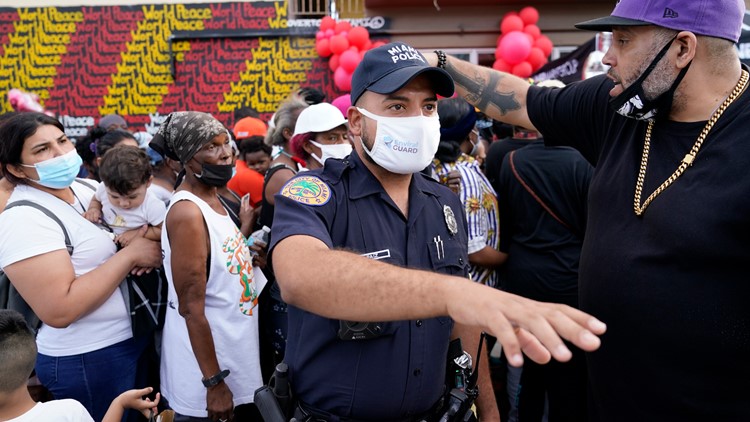Various versions of the claim that the World Health Organization (WHO) has secretly changed its definition of herd immunity have spread around social media in the past week.
Most of these posts claim that the WHO changed its definition of "herd immunity" from something that could be achieved through the processes of vaccination or antibodies developed after infection, to a threshold achieved and defined only by vaccination levels.
One such claim compares screenshots from the WHO website in June and November to show that the definition has changed. Other claims have referred to a WHO definition from before 2020.
But all of them have one important thing in common: they’re missing the context behind the WHO changes, none of which have been done in secret.
THE QUESTION
Did the WHO “secretly” change their definition of herd immunity?
THE ANSWER
The WHO has changed their definition of herd immunity on their COVID-19 page over the course of the year.
But it hasn’t been done in secret. They’ve explained why they’ve made such changes whenever updates are made. And the organization's website specifically says that the information on the page could change and evolve over time.
WHAT WE FOUND
The screenshots from the WHO’s website are real. The first herd immunity definition is from the June 9 version of the COVID-19 serology Q&A page. The second definition is from the November 13 version of the same page. There has actually been a recent update to the webpage since these claims began circulating that made further changes, and that update is from December 31.
You can see that the June 9 version had a one-paragraph definition for herd immunity that said it is the “indirect protection from an infectious disease that happens when a population is immune either through vaccination or immunity developed through previous infection.”
The Nov. 13 version, however, focused entirely on vaccination and said “'herd immunity’, also known as ‘population immunity’, is a concept used for vaccination, in which a population can be protected from a certain virus if a threshold of vaccination is reached.”
The Dec. 31 version that is now displayed includes the definition from the June 9 version with further clarification that the WHO supports achieving herd immunity through vaccination rather than mass infections.
Both the Nov. 13 and Dec. 31 versions reference the WHO Director-General’s Oct. 12 speech (he talked about herd immunity about 2:45 into the recording of it) as the basis for its definitions.
He challenged the idea of achieving herd immunity through simply letting the virus spread. He also argued the concept of herd immunity is generally used for vaccinations in determining how much of the population needs the vaccine, citing the measles and polio vaccines specifically.
“Never in the history of public health has herd immunity been used as a strategy for responding to an outbreak, let alone a pandemic. It is scientifically and ethically problematic,” he said.
Because of that, the WHO strayed away from referring to the strategy of letting the virus spread when defining herd immunity. It made it more clear on Dec. 31 when they referenced the original definition while reiterating its support for achieving it through vaccinations.
And the fact that this definition is changing over time isn’t necessarily a surprise. This webpage is specific to COVID-19. The WHO didn’t have a definition for herd immunity on the website until this year, when it included it on this COVID-19 Q&A page.
Both the June and November versions of the page remind readers that the information on the page won’t be and never has been final. “The answers to the questions below are based on our current understanding of the COVID-19 virus and the disease it causes. WHO will continue to update these answers as new information becomes available,” it says on the top of the page.
So yes, the WHO changed the definition for herd immunity on one of their Q&A pages. But no, it wasn’t a secret. It explained why it changed the definition and mentioned it in a media briefing. The WHO says the answers and definitions on that page will change with time. And recently, they brought back their original definition to help further explain why they’re now focusing on vaccinations for herd immunity.
Something you’d like VERIFIED? Click here to submit your story.



